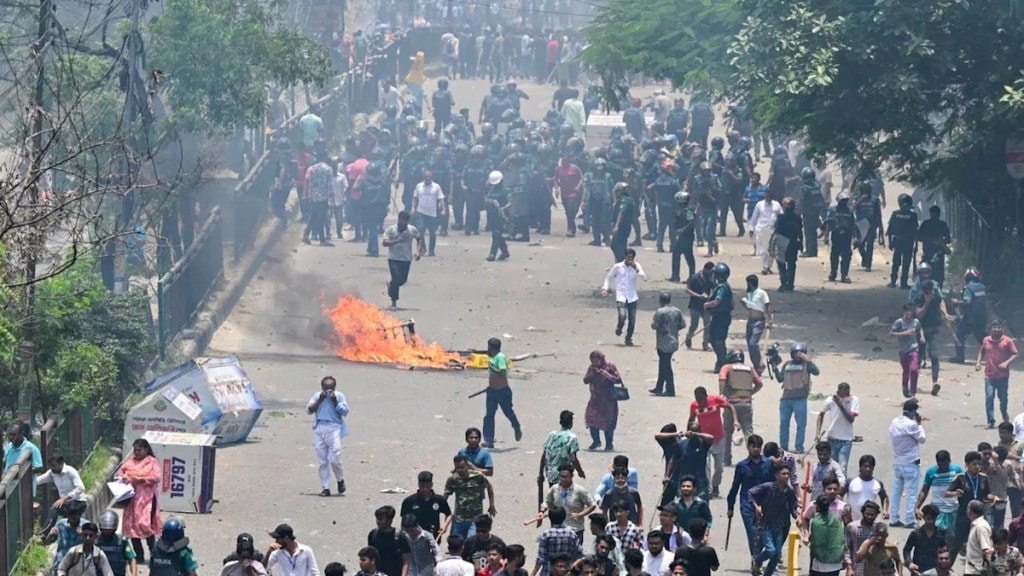At least 32 people have been killed as thousands of Bangladeshi students, armed with sticks and rocks, faced off against armed police in cities across Bangladesh, including Dhaka, Chattogram, Rangpur, and Cumilla.
The stir began on July 1 following the High Court’s reinstatement of the freedom fighters’ quota, reserving one-third of civil service posts for their descendants. This has escalated into violent clashes since.
On Thursday, the students set fire to the country’s state broadcaster, a day after Prime Minister Sheikh Hasina appeared on the network seeking to calm escalating clashes, AFP reported.
The protestors demanding reform of civil service hiring rules fought back and overwhelmed riot police who had fired at them with rubber bullets.
The incensed crowd chased the retreating officers to BTV’s headquarters in the capital Dhaka, then set ablaze the network’s reception building and dozens of vehicles parked outside.
Schools, universities closed
Hasina’s government has ordered schools and universities to close indefinitely as police step up efforts to bring the country’s deteriorating law and order situation under control.
She appeared on the TV broadcaster on Wednesday night to condemn the “murder” of protesters and vow that those responsible will be punished regardless of their political affiliation.
Also Read: Bangladesh protests over government job quotas escalate; At least six killed, over 400 injured
But violence worsened on the streets despite her appeal for calm as police again attempted to break up demonstrations with rubber bullets and tear gas volleys.
At least 25 people were killed on Thursday in addition to seven killed earlier in the week, according to a tally of casualty figures from hospitals compiled by AFP, with hundreds more wounded.
Meanwhile, Didar Malekin of the online news outlet Dhaka Times told AFP that Mehedi Hasan, one of his reporters, had been killed while covering clashes in Dhaka.
The protesting students, who on Wednesday, called for a “complete shutdown” of Dhaka, have rejected the government’s talks offer amid the raging protests.
The clashes and the subsequent arson has caused significant disruptions in Dhaka and other big cities of the country, leading to hardship for the people. Train services were heavily impacted, with blockades in Dhaka, Mymensingh, Khulna, and Chattogram.
Also Read: Indian Government Issues Advisory Amid Protests in Bangladesh
The protesting students also staged blockades in the smaller cities of Rajshahi and Barishal for several hours.
Meanwhile, mobile users across Bangladesh on Friday reported being unable to use the mobile internet and access social media amid widespread violence related to the quota stir.
Advisory for Indians in Bangladesh
Indian High Commission in Dhaka has issued an urgent advisory for Indian citizens and students in Bangladesh to avoid non-essential travel and minimise movement outside their residences due to the escalating unrest in the country.
The Indian government continues to monitor the situation and has advised all citizens in Bangladesh to adhere to the travel advisory and reach out to the High Commission or Assistant High Commissions if they are in need of urgent assistance.

